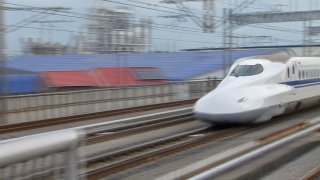
Texas Central announced Monday they signed a $1.6 billion contract with Kiewit Infrastructure South to install core electrical systems for a proposed bullet train expected to run from Dallas to Houston.
The contract calls for Kiewit to manage the installation of core electrical systems including critical safety and systems elements like Traction power, signaling and communications equipment to allow the trains to operate safely and ensure the tracks and operators communicate with one another using network operations.
"Kiewit and Mass. Electric are national leaders in installing complex and large-scale electric systems and have long track records of delivering high-quality rail systems safely and effectively," said Carlos Aguilar, CEO of Texas Central Railroad. "Combining their experience with the safety of an integrated system is essential to the operation of the Texas Central Railroad. Signing this contract is the next step in making the Texas Central Railroad the first high-speed rail system to be implemented in the United States."
Texas Central is hoping to replicate the Japanese Tokaido Shinkansen high-speed rail system in Texas, though there is stiff opposition from landowners who are reluctant to give the right of way.
Get DFW local news, weather forecasts and entertainment stories to your inbox. Sign up for NBC DFW newsletters.
'Texans Against High-Speed Rail' said Texas landowners who do not want to grant access to their land claiming it will cause a reduction in property values, an increase in ambient noise, more light and destruction of wildlife habitats.
Texas Central said the project could create an estimated 17,000 jobs during the six years of its construction, 20,000 supply chain hobs and more than 1,400 permanent jobs once the train is fully operational.
Texas Central said their project will use $7.3 billion of materials from US companies across 37 states and over the next 25 years and that it's expected to have a direct cumulative economic impact of $36 billion.

